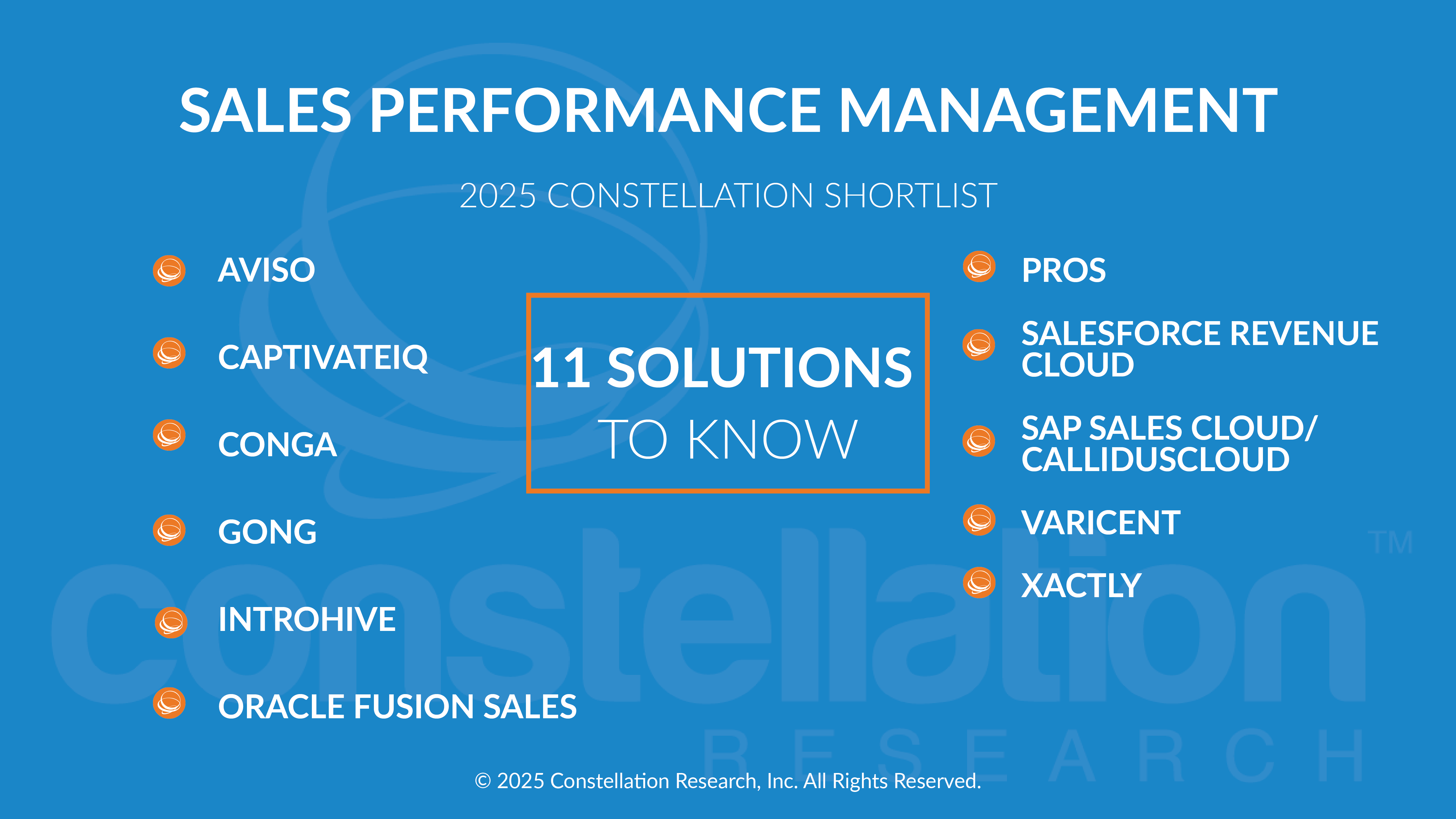
About This Constellation ShortList™
Sales performance management (SPM) systems are designed to help both individual sellers and management optimize sales processes and drive more effortless growth. While salesforce automation (SFA) and other CRM systems may track sales activities, SPM systems are designed to integrate data from various sales-related systems and activities to better inform and instruct sellers towards their best path to quota. In turn, management can get a more holistic and intelligent view of how sellers are performing, and make more proactive decisions given the richer data set inside SPM systems versus CRMs as it pertains to the actual selling motions in play.
Continued advancements in leveraging AI and large language models has driven much of the innovation in this sector. Users can now leverage AI to automate quota and territory planning, inject real-time coaching into the sales process, add more personalized gamification and incentives, and better correlation and summarization of sales interactions to guide next actions and best paths to attainment. Leading vendors in this sector are adopting more composable, no/lo code platforms to enable users to better configure the systems and utilize AI as they see fit.
The ideal outcome is improved forecast accuracy, higher conversation rates, shorter sales cycles and increased revenue. On a management level, sales performance management provides the opportunity to analyze and evaluate overall operational efficiencies and the effectiveness of individual sellers, identify and recognize success, improve timing and content of coaching, establish contextual and personalized seller training based on identified team wide best practices. In many cases, these tools also tackle broader challenges of territory management and commission or compensation management.
Threshold Criteria
Constellation considers the following criteria for these solutions:
- Consolidate account and customer insights from across internal data sources
- Incorporate external data sources for market context
- Leverage AI to process data, specifically to identify key trends and patterns for predictable growth planning, forecasting and performance
- GenAI powered coaching and establishment of automated actions to optimize action
- Integration to CRM and other enterprise systems
- Automated activity capture across channels
- Digital assistant that supports text and voice interaction
- Mobile accessible
- Recommended actions in customer account context
- Cross functional collaboration
- Data and performance-based coaching
- Territory management and planning
- Commission/compensation and incentives management
- Quota management and planning
- Robust reporting on performance, objectives and goals, and conversion analytics
- Integrated training and coaching environment with recommendations for improvement or course correction
The Constellation ShortList™
Constellation evaluates around 20 solutions categorized in this market. This Constellation ShortList is determined by client inquiries, partner conversations, customer references, vendor selection projects, market share and internal research.
- Aviso
- CaptivateIQ
- Conga
- Gong
- Introhive
- Oracle Fusion Sales
- PROS
- Salesforce Revenue Cloud
- SAP Sales Cloud/CallidusCloud
- Varicent
- Xactly
Frequency of Evaluation
Each Constellation ShortList is updated at least once per year. Updates may occur after six months if deemed necessary.
Evaluation Services
Constellation clients can work with the analyst and the research team to conduct a more thorough discussion of this ShortList. Constellation can also provide guidance in vendor selection and contract negotiation.


